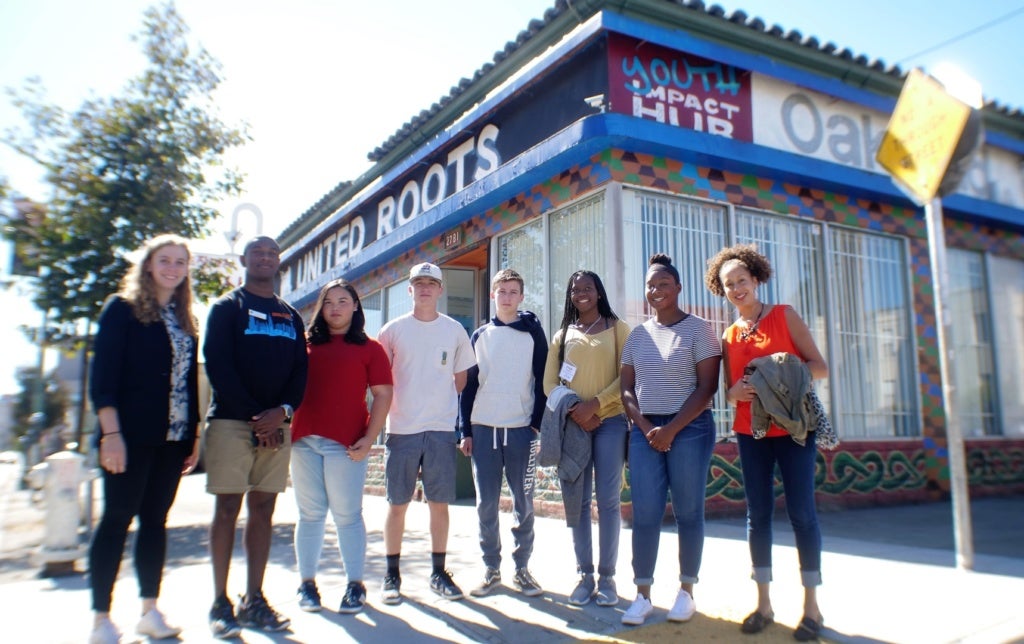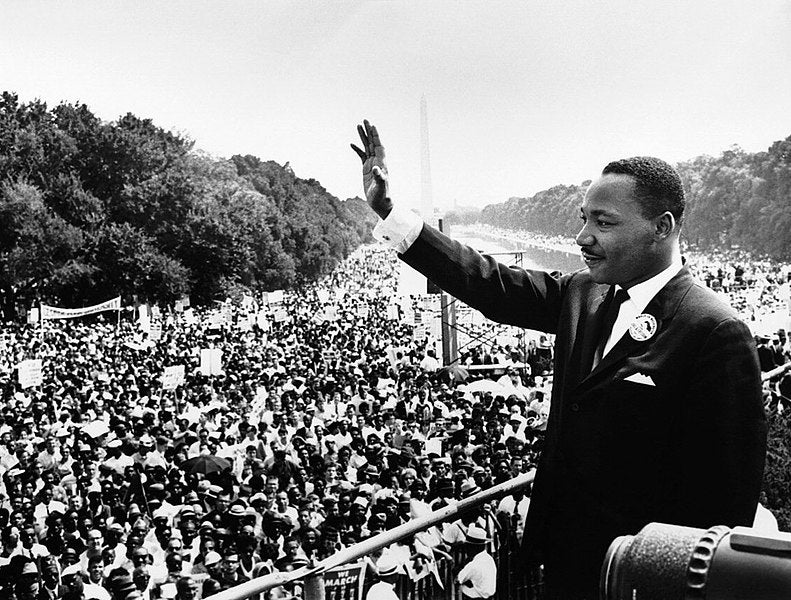At an October 3 City Council meeting, Oakland Mayor Libby Schaaf announced plans to deliver this year’s State of the City address at the Islamic Cultural Center of Northern California. Regarding the decision, Mayor Schaaf said, “I wanted to use the opportunity of the State of the City address to make a statement about Oakland’s highest ideals of diversity, inclusion, and compassion for our neighbors.”
At the Oakland Museum of California and Youth Impact Hub Oakland over the weekend, East Bay-area high school students made statements of their own about the state of race in Oakland and put the ideals alluded to by Mayor Schaaf on full display in a show of California Love.
Friday’s trip to the Oakland Museum of California (OMCA) took participants to the Gallery of California History, where exhibitions told stories of Native People and their histories ‘before the other people came;’ Spanish colonialism; immigration and opportunity during the Gold Rush; and the period of political turmoil, identity politics, and growth of a counterculture that spanned the 1960s to mid-1970s.
Themed ‘Coming to California,’ OMCA’s Gallery of California was designed to emphasize the ways that waves of immigration have shifted and continue to impact life in the Golden State.

After a group debrief and share-out after exploring the gallery, the group sat in on one of the Museum’s newest exhibitions, Question Bridge: Black Males. A collection of videos edited to simulate face-to-face conversations, the Question Bridge features a group of over 160 self-identified Black men from across the US answering each other’s questions around family, love, relationships, community, and education with powerful candor.
Day two of took participants to the United Roots Youth Impact Hub in Oakland’s Koreatown Northgate neighborhood.
AspenX moderator and founder of the Fellowship on Race and Equity in Education Michelle Molitor set the stage by reminding everyone that “the most dangerous conversation about race is the one we don’t have.”

From there, participants examined racially charged events of historical significance and contemplated how our country’s deep racial history affects our lives today. On the contrary, one participant pointed out that in her experience, schools teach racial history as an obstacle from our past not to be examined in the context of the present, adding “Jim Crow never ended. It still presents itself just as strongly, but redesigned.”
From that more general conversation, students went deeper into topics including gentrification versus revitalization – drawing connections between neglect and socioeconomic status – and the science of implicit bias – being reminded that we are all guilty of carrying harmful implicit biases and must challenge ourselves to be reflective as opposed to reflexive in our judgements of and actions towards others.
As we passed newly constructed apartment buildings and Ford GoBike docking stations on a short walk from the seminar space to Oakland City Hall, students agreed that it’s a good thing that people want to move to their hometown, because “Oakland’s a great place,” but that community must come first.
Back at the Youth Impact Hub, they brainstormed ideas to continue to be the welcoming community that people know and love while doing right by those who have always called Oakland home.
Gentrification being one of many issues of race and equity facing the East Bay area, to be sure, students’ ideas included diversifying narratives taught in school history courses to include more ethnic studies, tiny homes for the homeless, and redefining the role of law enforcement in communities.
True to Oakland Mayor Libby Schaaf’s assertion that Oakland’s highest ideals are diversity, inclusion, and compassion, East Bay high school students made it clear at AspenX that they don’t wish to see a new or an old Oakland, but one Oakland, unified through equity and justice for all who wish to call their Town home.
In accordance with Youth and Engagement Programs’ mission to empower young people, AspenX supported young entrepreneurs and living wage employment opportunities by contracting photography services through United Roots Media and catering services from the Town Kitchen.

